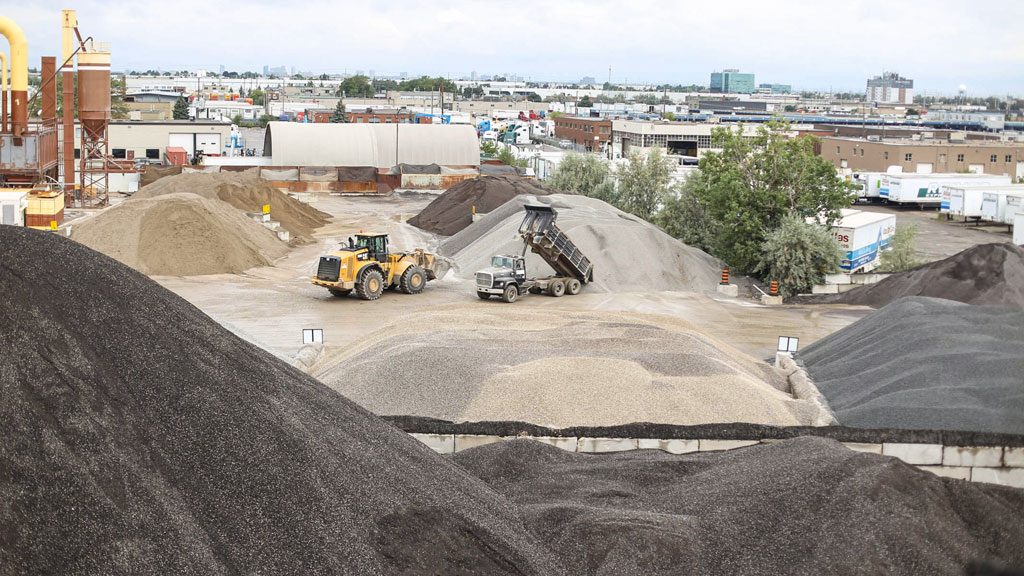A coalition of construction associations led by the Toronto and Area Road Builders Association (TARBA) is taking phase two of its campaign on asphalt and aggregates recycling directly to Ontario municipal councillors this spring.
Following on the heels of its Leader and Laggards initiative of last fall, that ranked municipalities based on their asphalt and aggregates recycling policies — to the discomfort of some — the allied associations have drafted a recycling policy it will disseminate across the province, hoping to nudge councils in the right direction.
The essential argument is that stakeholder-approved policies OPSS 1010 and OPSS 1150, encouraging use of up to 30 per cent recycled asphalt and aggregates, allow for less expensive and more environmentally responsible project delivery and make for perfectly safe and durable civil works. There is a strong environmental case for using some recycled materials in projects instead of requiring contractors to import virgin materials and truck used asphalt and aggregates to landfills, says TARBA.
“To me it’s a no-brainer,” said Rob Bradford, TARBA executive director. “We are actually dumping rocks in a landfill. Especially for governments, who are supposed to be leaders in this kind of thing, to ignore this, floors me.”
The proposed Municipal Aggregates and Asphalt Recycling Policy contains a four-part resolution — suitable for adoption by municipal councils this spring, in time for 2019 civil works contracts — in which the councils would assert they are “committed to the use of recycled construction aggregates and hot mix asphalt to maximum levels consistent with sound engineering and construction standards…”
“We are trying to sell the policy,” Bradford said. “Strategy-wise, if we can get councils saying we are committed to the policy, we are committed to recycling, then engineering departments will get their marching orders from councils.”
The other associations involved in the initiative are the Heavy Construction Association of Toronto (HCAT), the Greater Toronto Sewer and Watermain Contractors Association (GTSWCA), the Ontario Sewer and Watermain Construction Association (OSWCA) and the Residential and Civil Construction Alliance of Ontario (RCCAO).
There shouldn’t be any technical issues. The material is produced to spec, and it is absolutely good material
— Rob Bradford
Toronto and Area Road Builders Association
The Laggards report elicited diverse reasons from municipal officials for why they were not using recycled materials, and Bradford said the new campaign aims to address many of those through education. One concern was about possible inferior quality builds, with engineers “reticent” to use recycled materials for fear they might have to answer back to elected officials.
“Any concerns they had were history,” said Bradford. “There shouldn’t be any technical issues. The material is produced to spec, and it is absolutely good material. If you’ve got concerns about quality, take a couple more tests and make sure you are getting what you think you are getting.”
Another typical response was from municipalities that insisted they had adopted the OPSS standards — only to deviate from the policy when drawing up contracts.
“They say, ‘we use that,’ but then what happens, with every single contract that comes out, they take out the recycled aspect and say, ‘no, only virgin limestone,’ ” said Bradford. “So they are able to sit back and say, ‘we recycle,’ but they don’t.”
Unequivocal council endorsement of the proposed TARBA policy should resolve that, he said.
GTSWCA and OSWCA executive director Giovanni Cautillo raised cost and safety issues in explaining his groups’ support for the initiative. The GTSWCA and partners undertook a study that showed waste due to spending on soils amounted to 10 or 20 per cent of some project costs.
“If you can minimize that as well as minimize greenhouse gases and wear and tear on highways by taking big trucks off the road, making it safer for people, why wouldn’t you?” he asked.
Bradford and Cautillo acknowledged previous arguments from the Association of Municipalities of Ontario that standardization of policies province-wide was undesirable, with both suggesting the OPSS standards could be tweaked or adapted to meet local needs.
As for asking the province to legislate mandatory materials recycling, Bradford said that was a worthy long-term goal to pursue, a point Cautillo reiterated while saying the focus should be on municipal advocacy this year.
“All they have to do is, with the stroke of a pen put an addition on all the specs in all the tenders that you can use virgin and/or recycled material depending on the project,” he said.
RCCAO executive director Andy Manahan said this phase of advocacy is especially important given it is the first construction season with new councils after last fall’s municipal elections.
“Phase two is probably more important because will have new councils in place, a new group of players early in their mandate. We need them to consider amending their bylaws and practices to encourage more recycling of these products,” said Manahan.











Recent Comments